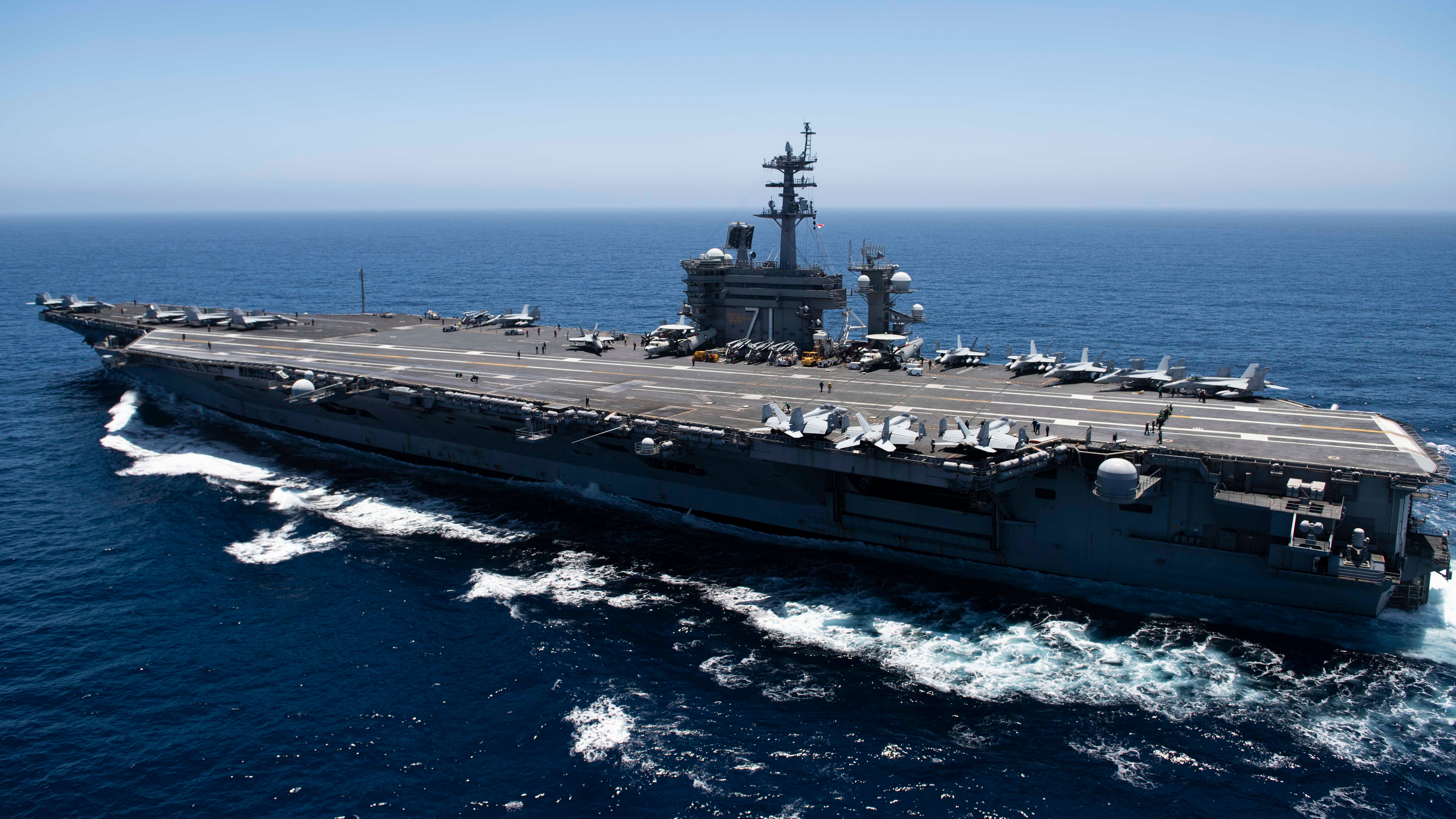Pentagon unveils sensor that detects Covid in the body
Invention inspired by huge virus outbreak on board USS Theodore Roosevelt

Pentagon scientists claim to have invented a sensor that once inserted under the skin will detect if the patient develops Covid-19.
And they have also developed a revolutionary filter that can remove the virus from the patient’s blood through a dialysis machine.
Researchers at the Defense Advanced Research Projects Agency (DARPA) say they have been working for years on ways to prevent and to end pandemics.
Their work on the sensor was revealed on 60 Minutes on CBS on Sunday night.
Retired Colonel Matt Hepburn, an army infectious disease physician leading DARPA’s response to the pandemic, showed off the technology on the show.
The idea for the invention came after 1,271 infections were recorded on board the USS Theodore Roosevelt aircraft carrier in 2020.
The sensor, which does not track movements, is carried in a tissue-like gel and is designed to continuously test the patient’s blood.
“You put it underneath your skin and what that tells you is that there are chemical reactions going on inside the body, and that signal means you are going to have symptoms tomorrow,” explained Col Hepburn.
And he added: “It’s like a ‘check engine’ light.
“Sailors would get the signal, then self-administer a blood draw and test themselves on site.
“We can have that information in three to five minutes. As you truncate that time, as you diagnose and treat, what you do is you stop the infection in its tracks.”
Col Hepburn also told the show that his team had invented a filter that if placed on a dialysis machine would remove the virus from blood.
He said that the four-day treatment had been given to “Patient 16”, the spouse of a military member, who was in organ failure and septic shock.
“You pass it through, and it takes the virus out, and puts the blood back in,” said Col Hepburn.
And he said that within days of the treatment the patient had made a full recovery.
The treatment has now been approved by the FDA for emergency use and has been used to treat almost 300 sick patients.
The body was originally known as the Advanced Research Projects Agency and was created in 1958 by president Dwight Eisenhower in response to the Russian launch of Sputnik the year before.
More than a quarter of the 4,800 member USS Theodore Roosevelt tested positive during a high-profile outbreak on the nuclear powered ship last year.
The carrier’s commander, Captain Brett Crozier, raised the alarm and sent a fiery letter to Navy leaders about the spread of the virus on the ship.
When it was leaked to the media he was relieved of his command, but kept his rank.
In video that was posted to social media hundreds of crew members cheered his name from the hangar deck as he left the ship.
A Navy inquiry later found that Captain Crozier, and his boss onboard the carrier, Rear Admiral Stuart P Baker made poor decision about the spread of the virus on the ship.
This article was amended on 24 April 2021 to remove an inaccurate reference to a ‘microchip’ and replace it with the word ‘sensor’.
Join our commenting forum
Join thought-provoking conversations, follow other Independent readers and see their replies
Comments
Bookmark popover
Removed from bookmarks